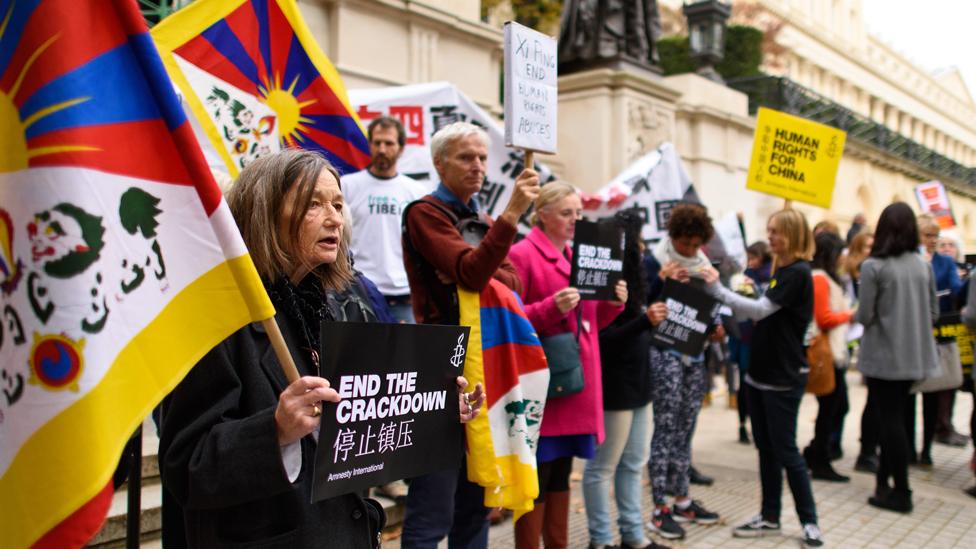China rights lawyer Pu Zhiqiang's trial ends amid scuffles
- Published
The BBC's John Sudworth was pushed away by security officials as he tried to report from outside court
There have been scuffles outside a courtroom in Beijing as one of China's most prominent human rights lawyers was put on trial.
Pu Zhiqiang is accused of "inciting ethnic hatred" and "picking quarrels and provoking trouble".
The trial ended with no verdict announced. Critics say the case is politically motivated.
Police scuffled with foreign journalists, diplomats and protesters who were barred from entering.
Mr Pu, who was in court over comments made on social media, is the latest to be tried in a crackdown on lawyers, dissidents and those accused of corruption. The lawyer faces up to eight years in prison if convicted.
Mr Pu's family said he had pleaded not guilty to all charges. His wife was allowed to attend the trial which lasted about three hours.
Dragged away
The court has not said when it will announce the verdict. The BBC's John Sudworth says that given the government's tight control of the courts, there is almost no chance of an acquittal and Mr Pu probably faces a lengthy spell in prison.
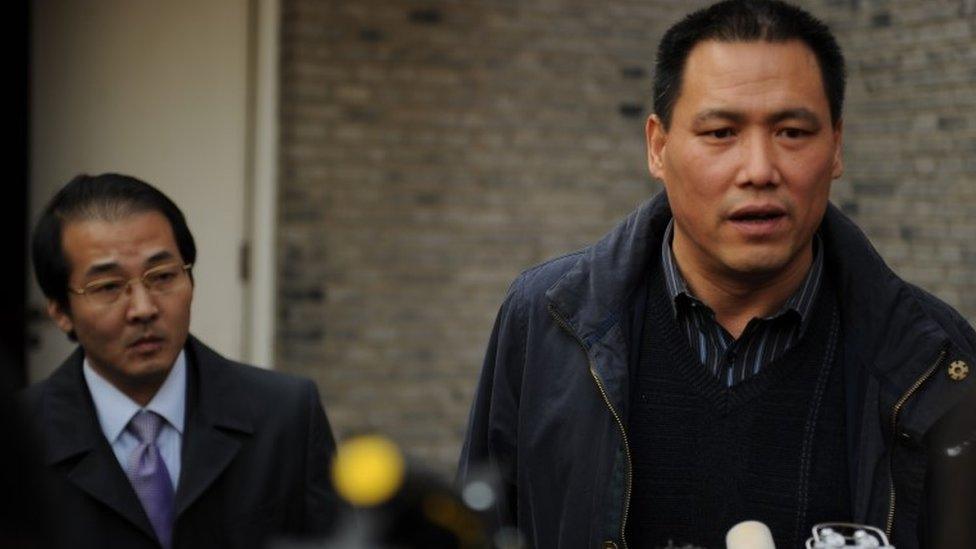
The case of Pu Zhiqiang (right) has gained international prominence
Mr Pu had posted several messages on microblogging platform Weibo questioning the authorities' "excessively violent" crackdown on Uighurs in the restive Xinjiang region.
He also alleged the Chinese Communist Party was an untruthful party, and mocked government rhetoric over the Diaoyu/Senkaku islands which are also claimed by Japan.
Mr Pu has been in detention since May 2014, after he attended an event to commemorate the 25th anniversary of the Tiananmen Square crackdown. He participated in the Tiananmen protests as a student.
His family and lawyer told reporters that although the lawyer had lost a lot of weight and his hair had turned grey, he appeared to be in good health and had an alert mind.
In his final remarks in court, Mr Pu was quoted by his lawyer as saying: "If my Weibo posts have ever harmed anyone, I am willing to apologise."
Mr Pu also thanked his friends, as well as the detention centre which "treated me well".
Outside the court, a small group of Mr Pu's friends and supporters held a protest on Monday morning.
A number of them were taken away by police, and a BBC crew witnessed at least one woman being dragged away from the scene.

At the scene: John Sudworth, BBC News, Beijing
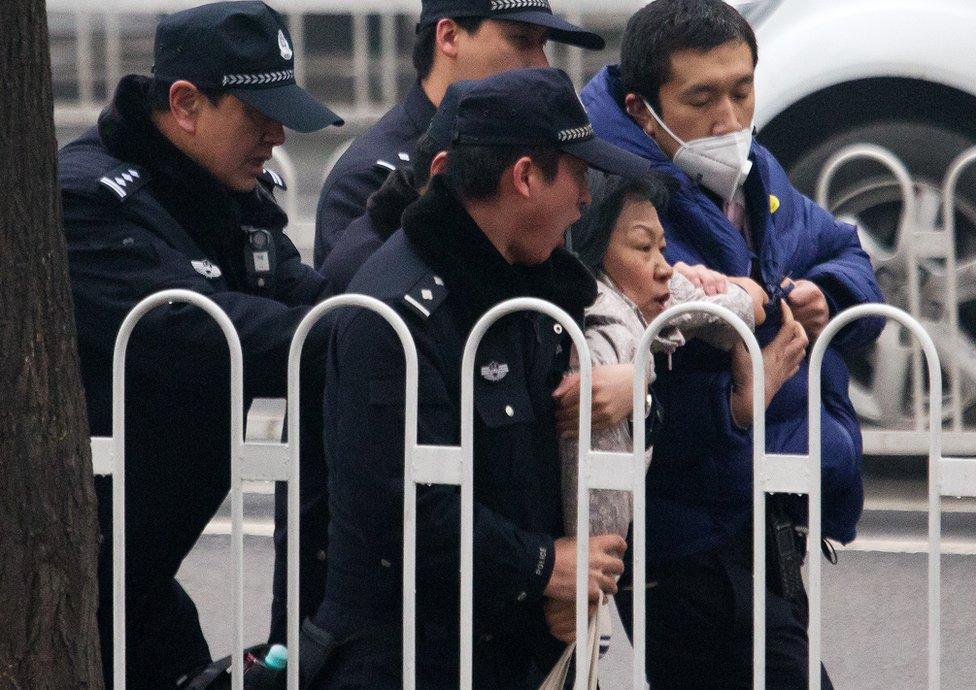
These were unusual scenes even by China's own standards for the treatment of journalists.
A large group of aggressive plain clothes policemen - many of them wearing yellow smiley-face badges - pushed, punched and harassed reporters, camera crews and diplomats away from the front of the court.
One US diplomat, who had tried to attend court as an observer, was jostled along the street as he tried to read a statement condemning China's treatment of Pu Zhiqiang.
The worsening climate for freedom of speech in China has been noted by many over the past few years, but the trial of Mr Pu, and the scenes surrounding it, are likely to be seen as a new low point.

US and EU diplomats were stopped while trying to making statements critical of the trial outside the court.
They later said lawyers and civil society leaders in China should not be subject to "continuing repression" and called on Beijing to uphold constitutional rights.
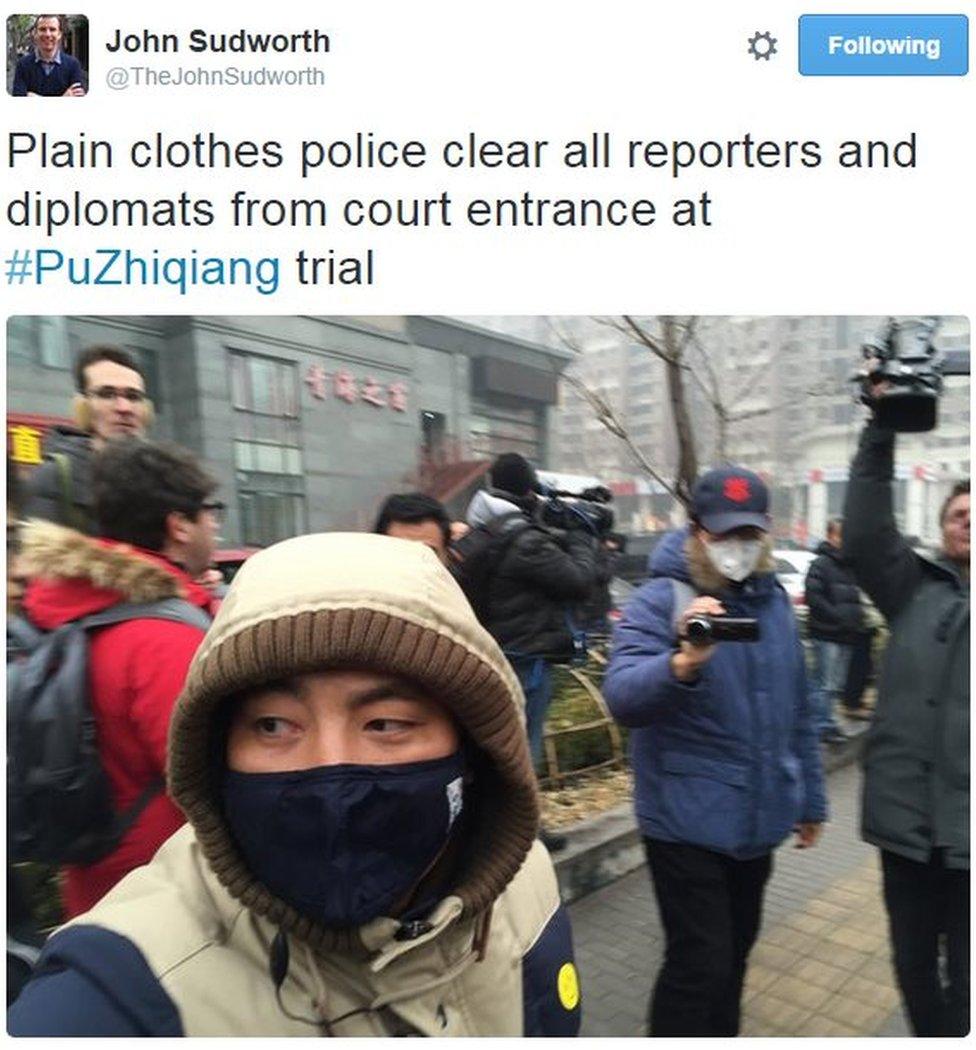
Plain clothes officials roughing up observers were wearing yellow smiley face stickers
The Foreign Correspondents Club of China posted a statement online, external condemning the manhandling of journalists, saying that at least one journalist was "slammed to the ground" by a security officer while others were pushed, shoved and punched in the back.
International rights groups have described Mr Pu's case as political persecution. Amnesty International says there have been "repeated procedural irregularities" in his prosecution.
Pu Zhiqiang represented artist Ai Weiwei in a tax evasion case that critics complained was politically motivated. He also campaigned for the eventual abolition of the labour camp system, under which suspects could be detained for years without trial.

Reaction: Vincent Ni, BBC Chinese
Although little can be found about Pu Zhiqiang on China's microblogging site Weibo, his trial has been widely discussed by intellectuals, journalists and Mr Pu's friends on mobile messaging app WeChat.
One said: "No matter what comes out of today's trial, at least one thing is clear: this result has nothing to do with 'law'."
Many of Pu's friends stood outside the Beijing court. One wrote on his WeChat: "Instead of calling today's trial the sentence of a lawyer, it is rather a public prosecution of a dictatorial regime."
A Facebook post from Taiwan's former Culture Minister, Lung Ying-tai, has also been widely circulated on WeChat. In the post, which was published before the trial, external, Ms Lung said: "The judge should be aware that all the Chinese people around the world are waiting for 9am today. They are waiting to see, in this great 'China Dream', how the state machine is going to deal with Pu Zhiqiang, who [simply] wrote some 600 words. Yes, Beijing, please show us. We all want to know where the progress of civilisation in this 'China Dream' is. "
Chinese media largely remain silent on Pu Zhiqiang's case. Last week, the state-run Global Times published a bylined editorial, accusing Western media of using the case to "attack China's rule of law". The author also urged the judge not to be influenced by public opinion.
- Published9 December 2015
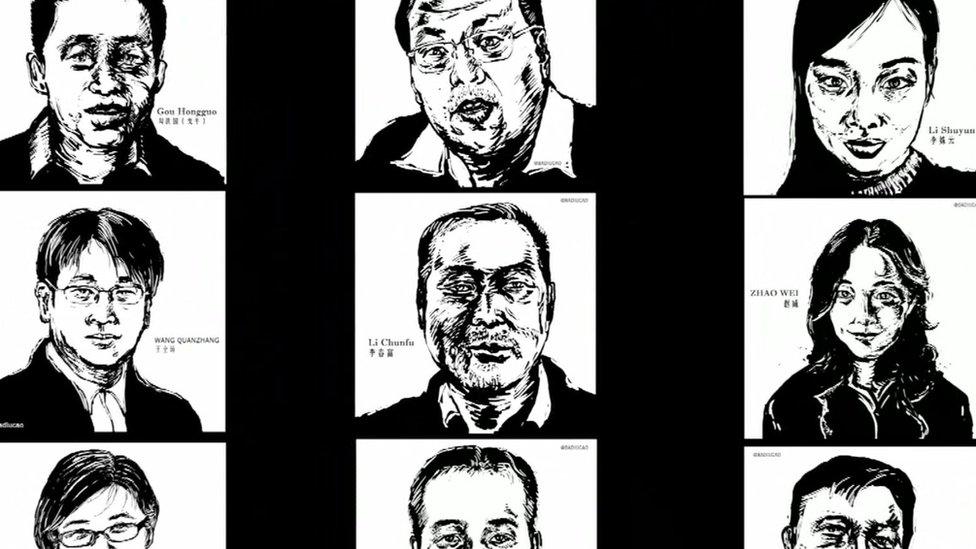
- Published9 September 2015
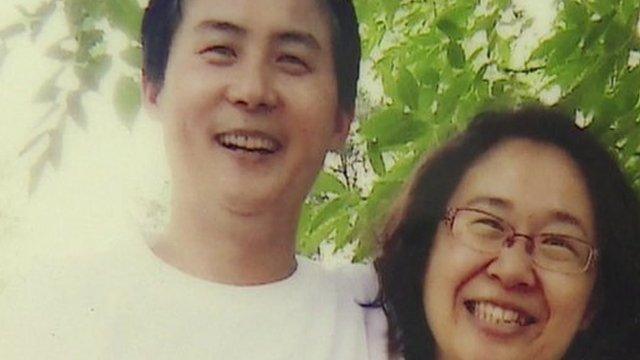
- Published21 October 2015
